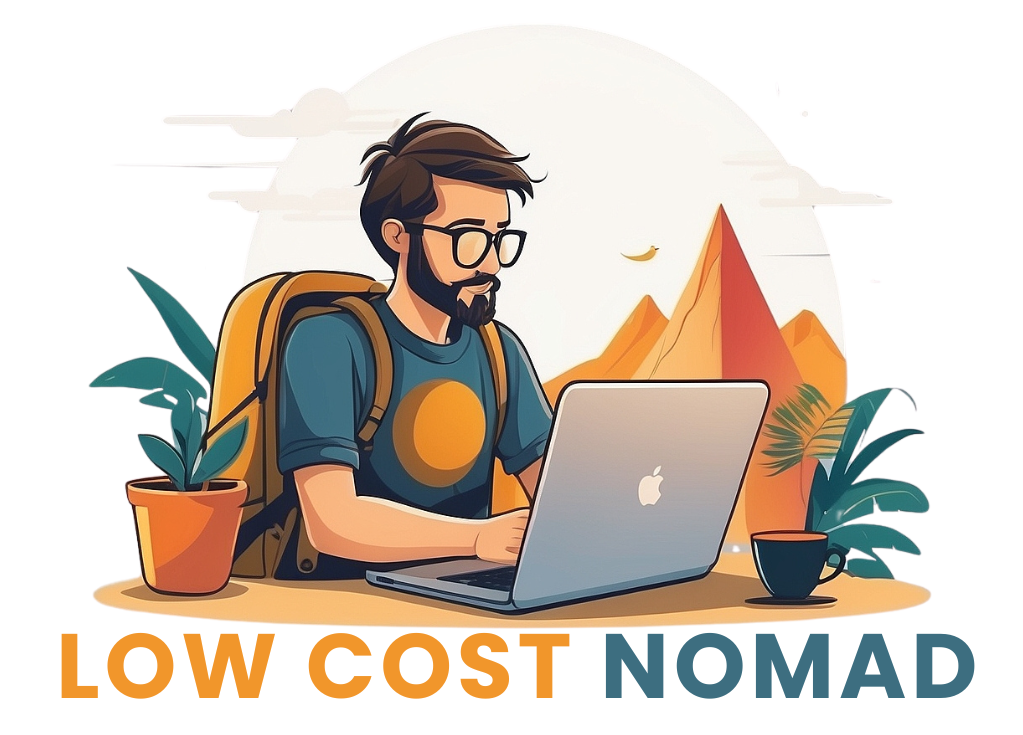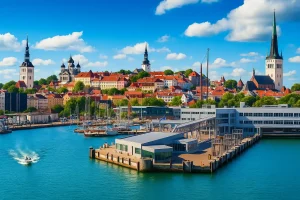The idea of working from anywhere in the world has captured the imagination of many people. Instead of being tied to an office desk in one city, imagine doing your job while looking out at the sparkling Mediterranean Sea. For those dreaming this dream, the concept of a digital nomad visa is exciting. And when you think of beautiful islands in the Mediterranean, Malta often comes to mind. This is where the nomad digital visa Malta, officially known as the Nomad Residence Permit, becomes a fascinating topic. This special permit allows people who work online for companies or clients outside of Malta to live on the island legally for a significant period. It’s a fantastic opportunity for those who have the flexibility to work remotely and are looking for a new, sunny place to call home temporarily.
This article is your comprehensive guide to understanding the Malta digital nomad visa. We will cover what it is, who is eligible, the benefits of living in Malta as a digital nomad, the specific requirements you need to meet, how to apply, and what life is like on this historic island. Our goal is to make this information easy to understand, even if you’re new to the idea of digital nomadism or the process of applying for a long-term stay permit. So, let’s dive into the world of remote work from the heart of the Mediterranean.
What Exactly is the Malta Nomad Digital Visa?
First, let’s get the name right. While many people search for “nomad digital visa Malta” or “Malta digital nomad visa,” the official name given by the Maltese government is the Nomad Residence Permit. This is a temporary residence permit designed specifically for individuals who are location-independent and can perform their work remotely using telecommunications technology.
The core idea behind this permit is to attract professionals and entrepreneurs who contribute to the global economy but do not take jobs away from the local Maltese population. It is aimed at people whose income comes from outside Malta. This means you cannot use this permit to work for a company based in Malta or serve clients primarily located in Malta (unless your existing foreign company has a branch there and you are assigned to it under specific conditions, which is less common for typical nomads). The Nomad Residence Permit is specifically for those with international remote work arrangements.
The permit allows successful applicants to reside in Malta for up to one year initially, with the possibility of renewal. This provides ample time to truly experience life on the island, immerse yourself in the culture, and continue your remote work without worrying about short tourist visa limits. It acknowledges that remote work is a legitimate and growing way to earn a living and live your life.
Who Can Apply for the Malta Nomad Digital Visa?
The Malta Nomad Residence Permit isn’t for everyone. There are specific requirements about your nationality and how you earn your living. Understanding these is the first step to knowing if this visa is right for you.
The permit is primarily intended for citizens of countries outside the European Union (EU), the European Economic Area (EEA), and Switzerland. If you are a citizen of an EU/EEA/Swiss country, you generally have the right to live and work in Malta without needing a special digital nomad permit, thanks to the freedom of movement principles.
Beyond nationality, your work situation is key. To be eligible, you must fit into one of these categories:
- Working for an employer registered in a foreign country: This is perhaps the most common scenario. You have a job with a company that is located outside of Malta, and they allow you to work remotely from anywhere, including Malta.
- Carrying out business activities for a company registered in a foreign country: This applies if you own or are a partner in a business that is registered outside of Malta, and you can run this business remotely from the island.
- Offering freelance or consulting services to clients whose permanent establishments are in a foreign country: This is for freelancers or independent contractors whose client base is located outside of Malta. Your income comes from these international clients.
In all these cases, the critical point is that your work and your income source must be located outside of Malta. This permit is designed to support individuals contributing to economies elsewhere while residing in Malta.
There is also an income requirement. While the exact figure can change, the widely referenced minimum gross monthly income is around €2,700. This income needs to be stable and consistent. You will need to provide proof that you meet this financial requirement, demonstrating that you can support yourself while living in Malta without relying on local public funds or employment.
The Benefits of Choosing Malta for Your Digital Nomad Life
So, why would you choose Malta as your remote work base using the nomad digital visa Malta? The island nation offers a unique blend of attractions that appeal to digital nomads:
- Strategic Location: Situated in the heart of the Mediterranean Sea, Malta is just a short flight away from many major European cities. This makes it easy to travel for business or leisure, exploring other parts of Europe or visiting home. The airport (MLA) is well-connected.
- Wonderful Climate: Malta boasts over 300 days of sunshine per year. This warm, sunny climate is a major draw, especially for those coming from colder regions. Enjoying mild winters and hot summers by the sea is a significant lifestyle upgrade for many.
- English is Widely Spoken: Malta has two official languages: Maltese and English. English is spoken fluently by most of the population and is used extensively in business, government, and daily life. This makes settling in, handling bureaucracy, and socialising much easier for English speakers.
- Rich History and Culture: Despite its small size, Malta has thousands of years of history. From ancient temples older than the pyramids to medieval fortified cities like Valletta and Mdina, there is always something fascinating to explore. The culture is a unique blend of Mediterranean and British influences.
- Growing Digital Nomad Community: As more people discover the Malta digital nomad visa and the island’s charms, a vibrant community of remote workers is growing. This makes it easier to connect with like-minded people, share experiences, and build a social network.
- Relatively Affordable Cost of Living (Compared to Some Places): While not the cheapest country in Europe, Malta’s cost of living can be quite reasonable, especially when compared to major cities in Western or Northern Europe. Rent, food, and transportation can be managed effectively, particularly with an income level that meets the visa requirement.
- High Quality of Life and Safety: Malta is generally considered a very safe country with low crime rates. It offers a high quality of life with access to good healthcare, amenities, and a relaxed pace of life compared to bustling metropolises.
- Good Connectivity: Reliable internet is essential for remote work, and Malta generally offers good internet speeds, including fibre optic in many areas. There are also plenty of cafes and co-working spaces with reliable Wi-Fi.
These benefits combine to make Malta a highly attractive location for individuals seeking a European base for their remote work journey.
Key Requirements You Need to Meet for the Malta Nomad Digital Visa
Applying for the Malta Nomad Residence Permit involves proving you meet several requirements. Gathering the necessary documents is a crucial part of the process. Here are the main things you will need to show:
- Valid Passport: Your passport must be valid for the entire duration of your intended stay in Malta, plus a little extra time. Make sure it’s not expiring soon.
- Proof of Remote Work Status: You need to provide clear evidence that you fit one of the eligible work categories mentioned earlier.
- If employed: A contract of employment from your foreign employer and a letter from them confirming you are allowed to work remotely.
- If self-employed/business owner: Business registration documents from your foreign country, articles of association, and perhaps evidence of business activity.
- If freelance/consultant: Contracts with foreign clients, invoices issued, and testimonials. The goal is to show you have legitimate work based outside of Malta.
- Proof of Income: This is critical for meeting the minimum income threshold (€2,700 gross per month). You will likely need to provide bank statements (possibly notarised or stamped by the bank) showing your income over a period (e.g., the last 3-6 months), along with payslips, invoices, or other relevant financial records. You need to demonstrate a stable and consistent income source from abroad.
- Comprehensive Health Insurance: You must have health insurance coverage that is valid in Malta and provides comprehensive coverage, including hospitalisation and medical treatment. This insurance needs to cover the entire period of your stay. Travel insurance is usually not sufficient; you’ll likely need a policy specifically designed for long-term stays or expats.
- Proof of Accommodation in Malta: Before your permit can be issued, you will need to show that you have secured accommodation in Malta. This could be a rental agreement for an apartment or house. The agreement should be registered with the relevant Maltese authorities (usually the Housing Authority). Sometimes, a temporary address (like a long-term Airbnb or hotel booking) might be accepted initially, but a registered rental contract is generally required for the final permit.
- Clean Background Check: You will need to provide a police conduct certificate or similar document from your country of origin (and potentially other countries you have resided in) to show you have no criminal record. This is a standard security requirement for long-term permits.
- Sufficient Funds: Beyond the monthly income requirement, the authorities may want to see proof that you have sufficient savings to support yourself initially or in case of unexpected situations. While not always a fixed amount like the income threshold, demonstrating a healthy bank balance is advisable.
Gathering all these documents can take time, so it’s wise to start preparing well in advance of your planned application.
Step-by-Step Application Process for the Malta Nomad Digital Visa
Applying for the Malta Nomad Residence Permit follows a specific process managed by Residency Malta Agency. While the exact steps or forms might see minor updates, the general flow is as follows:
- Prepare Your Documents: As outlined in the previous section, gather all the required documents. Ensure they are current, valid, and translated into English if necessary (official translations might be required).
- Submit the Online Application: The application process typically begins with submitting an application form and the initial set of required documents online through the official portal of Residency Malta Agency. You will need to create an account and upload scanned copies of your documents.
- Pay the Application Fee: There is a non-refundable application fee associated with the permit. You will need to pay this fee as part of the online submission process.
- Initial Review: The agency reviews your application and documents to ensure everything is complete and that you meet the basic eligibility criteria.
- Potential Interview/Biometrics: Depending on your situation and nationality, you may be asked to attend an interview or provide biometric data (fingerprints and a photo) at a Maltese embassy, consulate, or a designated office. This often happens if you are applying from outside Malta. If you are already legally in Malta (e.g., on a short-stay visa), you might do this on the island.
- Waiting Period: The application undergoes thorough checks and processing. The waiting time can vary depending on the volume of applications and individual circumstances. It’s important to be patient during this stage.
- Outcome Notification: You will be notified of the decision regarding your application. If approved, you will receive an approval letter or instruction on the next steps.
- Travel to Malta (if applicable): If you applied from outside Malta and were approved, you will then make arrangements to travel to the island.
- Finalise Permit Issuance: Once in Malta, you will likely need to report to Residency Malta Agency to complete any final steps, which may include providing biometrics if you haven’t already and collecting your Nomad Residence Permit card.
Throughout the process, clear communication and providing accurate, complete information are essential. Any missing documents or inconsistencies can cause delays.
Living in Malta as a Digital Nomad
Obtaining the Malta digital nomad visa is just the first step; experiencing life on the island is the reward. Living in Malta as a digital nomad offers a unique lifestyle. Here’s a glimpse:
Finding Accommodation
The most popular areas for expats and digital nomads include Sliema, St. Julian’s, Gzira, and Swieqi on the main island of Malta. These areas are more modern, have many apartments, co-working spaces, restaurants, and are well-connected. For a quieter, more traditional experience, places further south or on the island of Gozo might be appealing. Rental prices vary significantly based on location, size, and amenities. It’s advisable to start looking online before you arrive and potentially arrange some viewings upon arrival if you book short-term accommodation first.
Cost of Living
Compared to major global cities, Malta can be quite affordable. Rent is often the biggest expense, but groceries, local transport, and eating out at local eateries (pastizzerias are cheap and cheerful!) can be reasonable. However, importing goods can make some items more expensive. Budgeting around €1,500 to €2,500+ per month (in addition to your visa’s income requirement) might be a realistic estimate for a comfortable single person, depending heavily on accommodation choices and lifestyle.
Internet and Workspace
Internet connectivity is generally good in urban areas. Fibre optic broadband is available in many residences. Mobile data is also readily accessible. For those who prefer not to work from home, Malta has a growing number of co-working spaces, offering dedicated desk space, reliable Wi-Fi, and networking opportunities with other professionals.
Daily Life and Culture
Life in Malta is a mix of laid-back island pace and surprising vibrancy. The culture is strongly influenced by its Mediterranean neighbours and historical rulers. Family is central to Maltese life. There are numerous festa (village feasts) throughout the year, celebrating patron saints with fireworks, food, and music. Exploring the historical sites, enjoying water sports like swimming, diving, and sailing, or simply relaxing by the coast are popular pastimes. Learning a few basic Maltese phrases will be appreciated by locals, though English is sufficient for most interactions.
Connecting with Others
Beyond co-working spaces, social media groups (like Facebook groups for expats or digital nomads in Malta) are excellent ways to connect with the community, ask questions, and find meetups and events. There are often organised social gatherings specifically for remote workers and expats.
Living on a relatively small island means you’re never too far from the sea or historical sites. The opportunity to easily visit the quieter, greener island of Gozo for a change of pace is also a significant plus.
Common Questions and Things to Consider
As you think about the Malta Nomad Residence Permit, several practical questions might come to mind. Here are some common ones:
- How long can I stay? The initial permit is typically granted for one year. It is possible to apply for a renewal if you continue to meet the eligibility criteria.
- Can I bring my family? Yes, the Malta digital nomad visa allows you to include dependents in your application. This usually includes your spouse or partner and dependent children. You will need to provide their documents and potentially show proof of higher income to support your family.
- What about taxes? This is a critical point and often complex. As a resident in Malta, you might become liable for Maltese income tax. However, tax rules depend on various factors, including your duration of stay, the source of your income (where the company/clients are based), and tax treaties between Malta and your home country. It is highly recommended and essential to consult with a qualified tax advisor in Malta to understand your specific tax obligations. Do not assume you are exempt; get professional advice.
- Does this visa allow me to travel in the Schengen Area? The Nomad Residence Permit is a Maltese national permit, not a Schengen visa. However, because Malta is part of the Schengen Area, holding a valid Maltese residence permit typically allows you to travel to other Schengen countries for up to 90 days within any 180-day period for tourism or short visits. Your primary country of residence must be Malta.
- Is it difficult to get? The process requires careful preparation and submission of all required documents. Meeting the income threshold and proving your remote work status are key. Like any visa application, there is a review process, and approval is not guaranteed, but it is a legitimate pathway for eligible remote workers.
- What if my income fluctuates? The requirement is for stable and consistent income. Significant fluctuations or failure to meet the monthly threshold could potentially affect your application or renewal.
Is the Malta Nomad Digital Visa Right for You?
After exploring the details of the nomad digital visa Malta, you might be wondering if it’s the right path for your remote work journey. This permit is an excellent option for non-EU/EEA/Swiss citizens who have a stable, remote income from outside Malta and dream of experiencing life in a sunny, historic, and English-speaking Mediterranean country.
If you value a good climate, rich culture, ease of travel within Europe, and the opportunity to connect with a growing international community, Malta has a lot to offer. The key requirements, particularly the income threshold and proving genuine remote work outside Malta, are the main hurdles to assess for yourself. The application process requires patience and attention to detail in gathering documents.
For those who meet the criteria and are looking for a base in the Mediterranean to live and work remotely, the Malta Nomad Residence Permit provides a legitimate and attractive pathway.
Conclusion
The rise of remote work has opened up incredible possibilities for individuals to live and work from almost anywhere. The nomad digital visa Malta, or Nomad Residence Permit, stands out as a welcoming initiative from a beautiful European island nation. It offers a clear legal framework for non-EU citizens to reside in Malta for up to a year (renewable) while continuing their international remote careers.
As we have seen, Malta offers a compelling package: a fantastic location, pleasant climate, rich history, a friendly English-speaking environment, and a growing community of fellow remote workers. While there are specific requirements regarding income, work status, and documentation, these are manageable steps for those who are genuinely eligible.
For remote professionals and entrepreneurs seeking a Mediterranean lifestyle without interrupting their global work, the opportunity presented by the Malta digital nomad visa is significant. It’s a chance to combine a fulfilling career with the experience of living on a vibrant island at the crossroads of history and culture. If you meet the criteria and are ready for an adventure in the sun, exploring the possibility of obtaining the Nomad Residence Permit for Malta could be your next great move.




